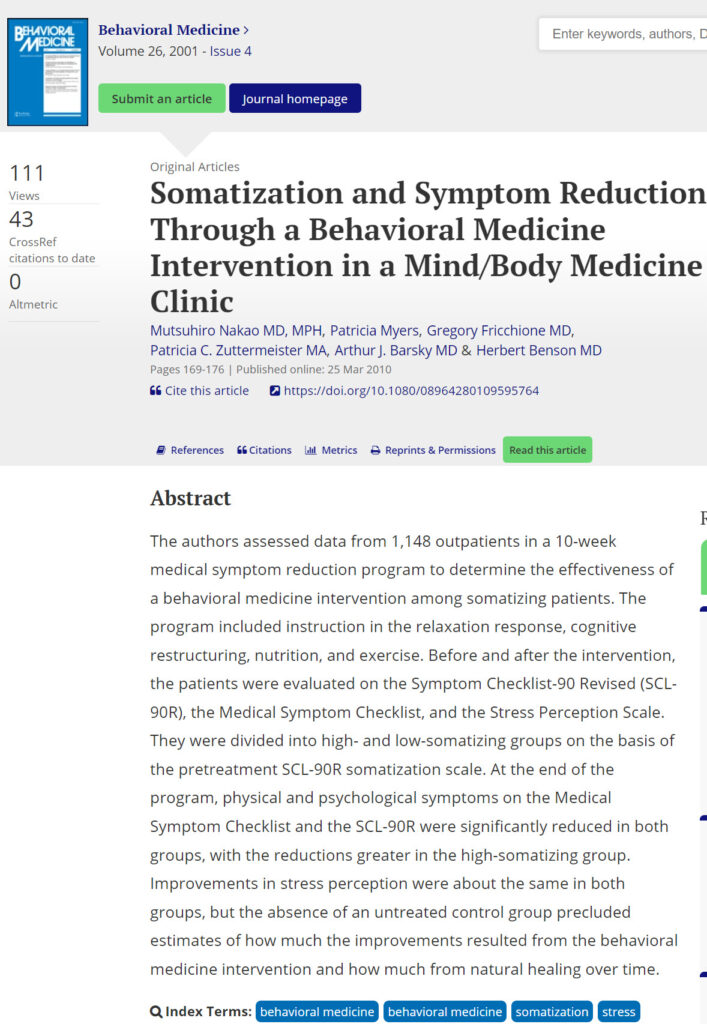The authors assessed data from 1,148 outpatients in a 10-week medical symptom reduction program to determine the effectiveness of a behavioral medicine intervention among somatizing patients. The program included instruction in the relaxation response, cognitive restructuring, nutrition, and exercise. Before and after the intervention, the patients were evaluated on the Symptom Checklist-90 Revised (SCL-90R), the Medical Symptom Checklist, and the Stress Perception Scale. They were divided into high- and low-somatizing groups on the basis of the pretreatment SCL-90R somatization scale. At the end of the program, physical and psychological symptoms on the Medical Symptom Checklist and the SCL-90R were significantly reduced in both groups, with the reductions greater in the high-somatizing group. Improvements in stress perception were about the same in both groups, but the absence of an untreated control group precluded estimates of how much the improvements resulted from the behavioral medicine intervention and how much from natural healing over time.
Somatization and symptom reduction through a behavioral medicine intervention in a mind/body medicine clinic
Publication
Behavioral Medicine
Volume 26, Issue 4
Abstract
Web and Email Links
Related Listings
Journal
Behavioral Medicine
This article describes the validation of an Inventory of Positive Psychological Attitudes that has potential relevance to health outcomes and its preliminary testing with chronic pain patients. The inventory taps two attitudinal domains: (1) life purpose and satisfaction and (2) self-confidence during potentially stressful situations. It also provides a total score. The inventory scales, developed using factor analysis, were found to have a strong degree of internal reliability and co […]
Journal
Am. J. Public Health
An experiment conducted at the corporate offices of a manufacturing firm investigated the effects of daily relaxation breaks on five self-reported measures of health, performance, and well-being. For 12 weeks, 126 volunteers filled out daily records and reported bi-weekly for additional measurements. After four weeks of baseline monitoring, they were divided randomly into three groups: Group A was taught a technique for producing the relaxation response; Group B was instructed to sit […]
Journal
The International Journal of Clinical and Experimental Hypnosis
Procedures for self- and hetero-hypnotic induction and for the elicitation of the relaxation response appear to be similar. Further, before experiencing hypnotic phenomena, either during a traditional or an active induction, a physiological state exists which is comparable to the relaxation response. This state is characterized, in part, by decreased heart rate, respiratory rate, and blood pressure. After the physiological changes of the relaxation response occur, the individual proce […]

